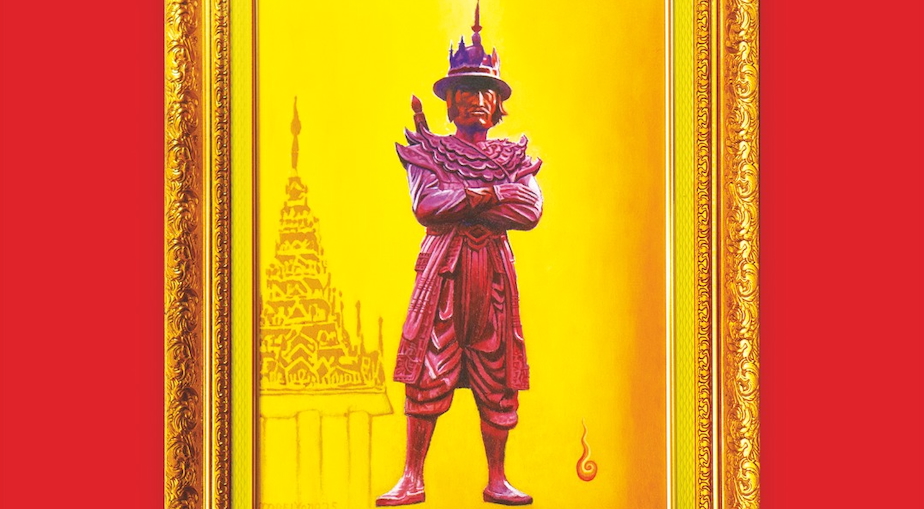KATE NAPTHALI falls in love with the Togians, and discovers that health and education are major needs
Lonely Planet says of the Togians: 'This archipelago of pristine coral and volcanic isles in the middle of Teluk Tomini is a riot of blue, gold and green. Undisturbed jungle shelters a variety of wildlife, reefs around the islands support rich marine life, and the seven or so ethnic groups sharing this place are extraordinarily hospitable'.
But reefs, pristine now, are under threat from poisoning and bombing by fishermen driven to the margin by credit merchants. And the healthy jungle biodiversity is being invaded by plantations leaking into them in the face of worsening copra yields from existing plantations.
Lying less than one degree south of the equator, the island group is made up of seven major islands and more than a hundred smaller ones. They lie in the transition zone separating the Australia-like flora and fauna of Eastern Indonesia from those of Asia-like Western Indonesia.
Ethnic groups
A 1990 government study identifies only one ethnic group in the Togian Islands. Any casual observation will prove this incorrect. It ignores migrants from Gorantolo, Bugis, Poso and Minahasa, as well as the Chinese merchants.
The original Togian people of the Togian Islands are still found towards the central part of the island group. Their major village Benteng is the oldest community in the Togians and was the former capital of the Benteng Kingdom. It is known for durian and avocado.
Sea nomads
On the periphery of Togian society lie the Bajau-Sama ethnic group. They live in small communities scattered through the Islands. Where other ethnic groups have mixed to form the larger mercantile communities of Wakai, Katupat, Malenge and Dolong, the Bajau-Sama have remained almost isolated from change. They are (or were) sea-nomads without a permanent land base. They are poor.
From birth, the sea is 'part of them' - their home, their work and their source of food. The dead are buried on land, away from the living community. Bajau-Sama divers go down to 30 metres without breathing apparatus in search of sea cucumber and pearl. They are found either in permanent or in seasonal fishing communities. Travelling as a family, they often move between permanent and seasonal fishing communities.
Health
Standard health indicators in the Togians are depressing reading. Malaria follows seasonal patterns, with the cumulative incidence in one sub-district reaching 4.7% of the population. There are reasons to believe this represents only 40%-50% of total symptomatic malaria cases. Added to this are cases showing no or only mild symptoms of illness, and those where people have given up on treatment or have no access to health care.
Other important infectious diseases include tuberculosis, leprosy, and most enteric infections (e.g. the dysenteries, rotaviruses, giardia). Upper respiratory tract infections accounted for approximately 33% of cases in one sub-district. Many of these may be misdiagnosed worm infections such as roundworm, hookworm and strongyloides. The larvae of the worms migrate to the gut via the lungs causing similar symptoms.
Education
Education quality can be measured through input indicators such as quality of classrooms, teaching materials and teaching staff, and output indicators such as drop out rates and progression rates from primary to secondary high school.
On these indicators, education in the Togians is very poor. Follow-on rates to junior secondary high school are only 2-3%. Primary school dropout levels are high, and teaching materials are poor or non-existent. Teachers, not necessarily untalented, are usually unmotivated, partly due to poor salaries.
Most primary aged children receive some schooling, though many drop out during the harvest seasons or major fishing months. There are only two junior high schools and one senior high school, making expense a major consideration. Parents who can afford it may send their children out of the Togian Islands to continue their education, creating a 'brain drain'.
Poor people who have had some experience of primary education often question its relevance to their needs. One farmer in Desa Kolilio on Pulau Una-Una commented that schooling tended to create false expectations, and knowledge was something which could not be taken to heaven. High drop-out rates probably reflects rational decision making by the parents. Perceiving few benefits from state education, parents withdraw their children to work.
Community programs
However, villagers remain enthusiastic about community education and development programs. A three day workshop on the relationship between the local fishing industry and the environment held in April 1996, for example, excited a favourable response.
The inclusion of vocational training, family health and nutrition and environmental education in the school curriculum would benefit the local community. Although local knowledge systems regarding their immediate environment are good, their understanding of sustainable farming and agricultural methods is not. Hopefully, NGOs can include these matters in their educational programs in future.











